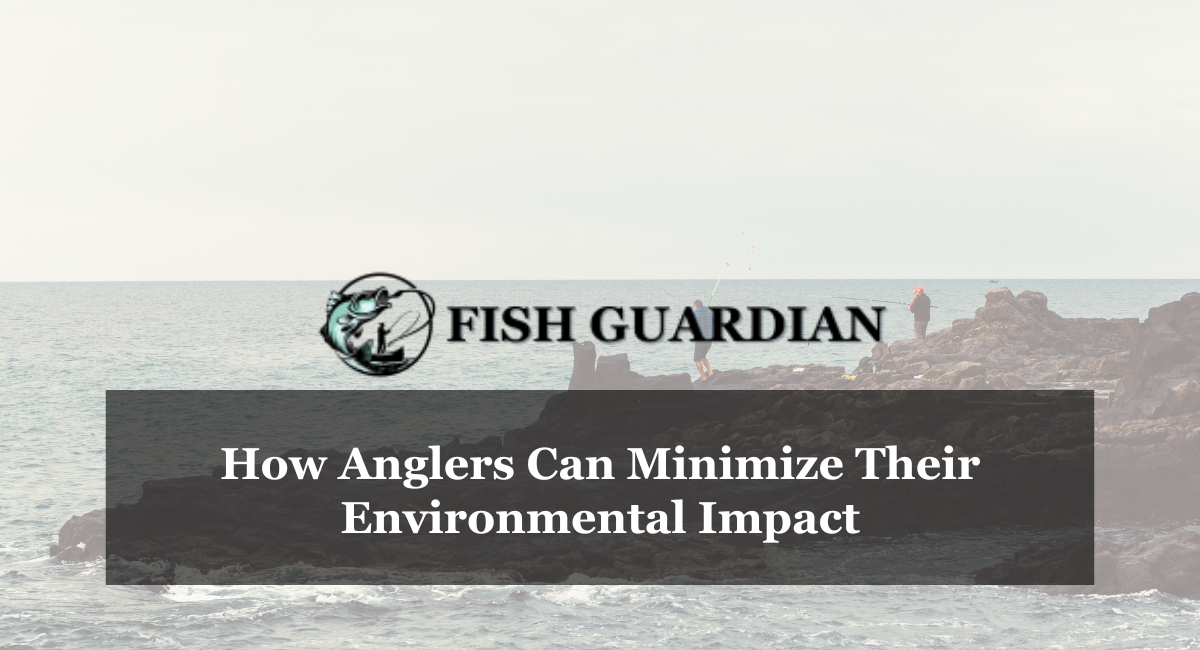For many, the image of a tranquil morning spent casting a line on a glassy lake or battling a feisty fish in the ocean current defines pure bliss.
But as responsible anglers, we must acknowledge the potential impact our passion has on the very ecosystems that provide us with this joy.
The good news? There are numerous ways we can minimize our environmental footprint and ensure healthy fisheries for generations to come.
Here’s a detailed guide for eco-conscious anglers who want to make a positive difference:
1. Be a Responsible Gear Guru:
Fishing Line: Traditional fishing lines can take hundreds of years to decompose, posing a threat to marine life. Opt for braided fishing lines made from recycled materials or fluorocarbon lines, which decompose faster.
Sinkers and Weights: Lead sinkers and weights are harmful if ingested by wildlife. Choose eco-friendly alternatives like tungsten or steel weights, or explore snag-free designs that reduce the risk of losing them in the water.
Hooks: Barbed hooks can cause unnecessary injury to fish. Consider using circle hooks, which snag the fish’s jaw instead of its body, making catch and release easier.
Pro Tip: Invest in a tackle box organizer to keep your gear neatly arranged. This helps prevent accidental loss of tackle in the water.
2. Embrace Sustainable Fishing Practices:
Know Your Limits: Respect fishing regulations and bag limits. These restrictions are in place to ensure healthy fish populations. Taking only what you need allows others to enjoy the fishery and preserves the resource for future generations.
Target the Right Species: Research the specific fish populations in the water body you’re fishing. Avoid targeting species that are threatened or overfished.
Practice Selective Fishing: Let smaller fish go to ensure a healthy population structure and allow them to grow and reproduce.
3. Master the Art of Catch and Release:
Handle Fish with Care: Use wet hands when handling fish to minimize damage to their protective slime coating. Support the fish horizontally and avoid grabbing it by the gills.
Unhook Fish Quickly and Efficiently: Use barbless hooks or circle hooks for easier release. Have needle-nose pliers on hand to remove hooks lodged deeply.
Revive the Fish Before Release: Hold the fish gently in the water, allowing it to regain its balance and strength before releasing it back into the water.
4. Become a Champion for Clean Water:
Pack It In, Pack It Out: Leave no trace behind. Bring reusable water bottles and lunch containers to avoid generating waste. Dispose of trash properly in designated bins or take it home with you.
Minimize Boat Pollution: Boat leaks and spills can contaminate waterways. Regularly maintain your boat engine and use oil-absorbent pads to catch any spills.
Be Vigilant About Aquatic Invasive Species: Inspect your boat and gear for invasive plants or mussels before and after each fishing trip. Report any sightings to the authorities to prevent the spread of these harmful species.
5. Advocate for Healthy Fisheries:
Support Conservation Organizations: Donate to or volunteer with organizations dedicated to protecting fish populations and their habitats.
Spread the Word: Educate fellow anglers about sustainable fishing practices. By sharing your knowledge, you can create a ripple effect of positive environmental impact.
Stay Informed: Keep yourself updated on local fishing regulations and conservation efforts. This allows you to make informed decisions and support sustainable fisheries management practices.
Remember, every angler has the power to make a difference. By adopting these eco-conscious practices, we can ensure that the thrill of catching a fish is matched by the satisfaction of knowing we’re contributing to a healthy and vibrant aquatic ecosystem.
So, the next time you head out for a fishing trip, take a moment to appreciate the beauty of nature and commit to being a responsible steward of this precious resource. Tight lines and a healthy planet!

Leave a Reply